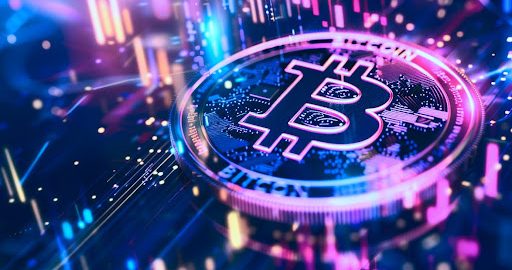How to get started in DeFi: A beginner’s guide to decentralized finance (2023)

In Brief
It is a catch-all term for financial applications and services that are built on decentralized infrastructure, such as blockchains and peer-to-peer networks.
If you take these precautions, you’ll be well on your way to navigating the DeFi ecosystem safely and securely.
With the recent explosion in the popularity of decentralized finance (DeFi), there has never been a better time to get started. But where do you begin? This guide will take you through the basics of getting started in DeFi, from understanding what it is and how it works to find the right projects and protocols to invest in.
The DeFi ecosystem relies on publicly distributed networks and smart contracts to provide access to financial services for everyone, regardless of location or economic status. By deploying decentralized applications (dApps) on Ethereum, DeFi developers can create platforms and products that are accessible to anyone with an Internet connection.
Since DeFi is still in its early stages, there is a lot of experimentation going on and many projects are yet to be proven. This means that there is a higher risk involved in investing in DeFi than in traditional financial products. However, it also means that there is the potential for much higher rewards.
If you’re thinking about getting started in DeFi, here are a few things you need to know:
What is DeFi?
DeFi is short for decentralized finance. It is a catch-all term for financial applications and services that are built on decentralized infrastructure, such as blockchains and peer-to-peer networks.
DeFi platforms offer a wide range of services, from lending and borrowing platforms to stablecoins and tokenized BTC. By using smart contracts, these platforms can automate many of the processes and functions that are typically handled by centralized institutions, such as banks.
How to use DeFi protocols?
Most DeFi protocols can be used in a similar way to traditional financial products. For example, Maker is a decentralized lending platform that allows users to lock up collateral and borrow against it. The compound is another lending platform that allows users to earn interest on their cryptocurrency holdings. Other protocols, such as Kyber Network and Uniswap, are decentralized exchanges that allow users to trade cryptocurrency without the need for a centralized exchange.
In order to use any of these protocols, you will first need to set up a wallet that is compatible with Ethereum. We recommend using MetaMask, which is a browser extension that allows you to interact with dApps and use DeFi protocols directly from your browser.
Once you have MetaMask set up, you will need to purchase some Ethereum (ETH) and load it into your wallet. ETH is the native currency of the Ethereum network and is required to interact with most DeFi protocols.
Once you have ETH in your wallet, you can begin exploring the various DeFi applications and services that are available. We recommend starting with a protocol such as Maker or Compound, which offer a simple way to get started with DeFi without having to worry about the more complex aspects of the ecosystem.
You can prevent yourself from becoming a victim of fraudulent investment schemes by taking these extra steps: Research whether the projects have undergone audits. To do this, type the name of the project into a search engine along with the word “audits.” This should reveal whether an audit has taken place.
What are DeFi services?
In addition to the protocols that make up the DeFi ecosystem, there are also a number of services that cater to users of decentralized applications. These services include:
- Wallets that allow users to store and manage their cryptocurrency holdings. Examples include MetaMask and Gnosis Safe.
- Blockchain explorers that allow users to track transactions and explore data on decentralized networks. Examples include EtherScan and BlockScout.
- Decentralized exchanges are used for trading cryptocurrency without the need for a centralized exchange. Examples include Kyber Network and Uniswap.
- Lending platforms allow users to lock up collateral and borrow against it. Examples include Maker and Compound.
- Stablecoins allow users to store value in a currency that is pegged to the US dollar. Examples include DAI and USDT.
- Tokenized BTC allows users to trade BTC on Ethereum without having to trust a centralized custodian. Examples include WBTC and HBTC.
Is there a future for DeFi?
For the future and health of the digital asset market, decentralized finance (DeFi) could be one of the most important developments. DeFi is an evolved version of financial services, powered by blockchain technology, that provides an unprecedented level of freedom and accessibility when it comes to money.
With increased decentralization in the world economy, DeFi could provide a secure, reliable way for people to access financial products without relying on the government or corporate intermediaries.
Conclusion
Don’t forget to always research a project before investing. Look into the team behind it, read the project’s white paper, and check whether the project has undergone any audits. If you take these precautions, you’ll be well on your way to navigating the DeFi ecosystem safely and securely.
Related articles:
- Bored Ape Yacht Club Creators Raised $450M for a Metaverse Project
- Top 10 Ethereum NFT Collections Listed by Trading Volume
- Bored Ape ‘Otherside’ Metaverse Drops Next Week, ApeCoin Soars to Record High
- Bose and Warner Records UK team to launch new NFT collection
- NFT project Deadfellaz partners with DJ Steve Aoki to release a Halloween fashion capsule
Disclaimer
In line with the Trust Project guidelines, please note that the information provided on this page is not intended to be and should not be interpreted as legal, tax, investment, financial, or any other form of advice. It is important to only invest what you can afford to lose and to seek independent financial advice if you have any doubts. For further information, we suggest referring to the terms and conditions as well as the help and support pages provided by the issuer or advertiser. MetaversePost is committed to accurate, unbiased reporting, but market conditions are subject to change without notice.
About The Author
Ken Gitonga is passionate about writing. His work involves writing crypto articles on SEO, TAs, News writing, Web3 articles, crypto price prediction, and white paper drafting. Ken is a content writer and marketer. He has worked in the SEO and content marketing industries for over 3 years and has helped businesses grow their online presence and traffic.
More articles

Ken Gitonga is passionate about writing. His work involves writing crypto articles on SEO, TAs, News writing, Web3 articles, crypto price prediction, and white paper drafting. Ken is a content writer and marketer. He has worked in the SEO and content marketing industries for over 3 years and has helped businesses grow their online presence and traffic.


















































